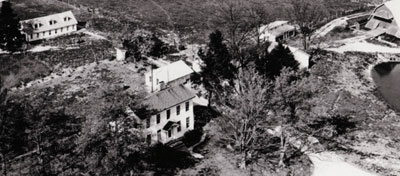The project of re-situating the development and underdevelopment of rural communities historically is a large and complex task. It is, however, a critical one, I believe, if scholarship is not simply going to be backward-looking, romantic, and nostalgic, and if rural people are to be viewed as actors in history, and not simply as acted on. I propose, in this essay, to begin an analysis of several processes that linked farming to the arguably more dynamic industrial cities not only economically, but socially, intellectually, and spiritually.
A few recent studies have implicitly and explicitly viewed the process of modernization as one sought by many rural people: Joan Jensen pointed out some years back, in Loosening the Bonds, that the developing market economy often gave women a degree of economic autonomy and independence they could not attain within the bounds and bonds of family and community. Deb Fink argued in Agrarian Women that within "traditional" farming communities, rural women were subjected to harsh and often brutally oppressive conditions. Blanke (2000), in his study of consumer behavior in the late nineteenth century Midwest, argued that farmers appear to have initiated and consciously shaped their engagement with the developing consumer culture that is one of the marks of modernity. Ownby (1999), in his study of consumer culture in Mississippi, points out that women and African Americans often had a view of consumption that was far more positive than that of white male cultural leaders.
Modernity, in short, should be viewed through a lens that stresses both the shredding of (rural) community and its promise of human liberation – practical, intellectual, and spiritual. And that sees the particular arrangement of rural life and customs as historically particular and always in the process of contestation and negotiation.
|
|
|
|
"Modernity" and U.S. farm women's poultry operations: farm women nourish the industrializing cities 1880-1940. Paper presented at the international conference, The Chicken: Its Biological, Social, Cultural, and Industrial History: From Neolithic Middens to McNuggets. May 17-19, 2002, Yale University, Program in Agrarian Studies. © Jane Adams 2002
Jane Adams' Home Page
|
|
|
|
|
|
